Seoul to the World: BLACKPINK, Stray Kids and the K-Pop Wave DominATE-ing the Globe
K-pop has evolved from a niche South Korean genre into a global cultural juggernaut, dominating charts, headlines, and hearts across continents...
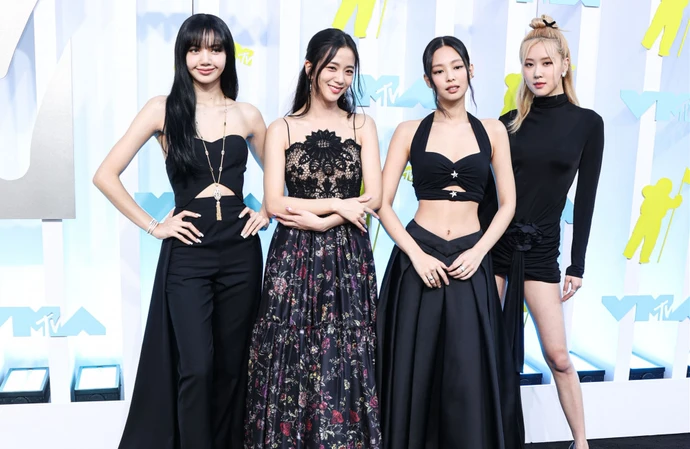
An outbreak of K-pop has been spreading rapidly across countries and continents dominating the global stage. What began as a national sensation has now reached pandemic proportions, transforming into an unstoppable worldwide phenomenon.
In just the past decade, K-pop (Korean popular music), has exploded oversees - thanks to trailblazing artists from the South-East like BTS, Blackpink and Stray Kids - growing into a multi-billion dollar industry.
With catchy beats and a fusion of hip-hop, R&B, reggae, rock, techno, and more, K-pop is a treat for the eyes as well as the ears, thanks to synchronised dance moves that elevate this genre to a whole new level.
K-pop first cracked the global market in 2012, with Psy’s Gangnam Style taking over the internet. The track’s massive success paved the way for other Korean artists to gain global recognition. BTS have previously acknowledged Psy as the K-pop ambassador.
BTS’s Suga said: “He was always someone I was grateful for. With Gangnam Style, he paved the way for K-pop in the U.S. so that we were able to follow his footsteps with ease.”
Before Korean music made international waves, Japan’s J-Pop was the original trendsetter in the East, forming the blueprint for broader Asian Pop genre, which later branched into subgenres like C-pop (Chinese Pop), P-pop (Pilipino pop), T-pop (Thai Pop) and Q-pop (Kazakhstani pop). Fast forwarding to today, K-pop has raised the bar.
In 2023, BLACKPINK made history as the first-ever Korean band to headline Coachella, a monumental achievement for all Asian artists. Formed by YG Entertainment, the powerhouse quartet - Jisoo, Jennie, Rosé and Lisa – debuted in 2016 quickly becoming the “biggest girl group in the world”, selling millions of albums and smashing new records. That same year BLACKPINK also became the most streamed girl group on Spotify, surpassing a staggering 10 billion streams.
But it’s not just their slick choreography, killer vocals and fierce fashion that has catapulted them to stardom. With over 57 million followers on Instagram, the BLINK fanbase is an army worshipping the ground they walk on.
After a brief hiatus to focus on solo projects, BLACKPINK are back in action with their Born Pink world tour, once again lighting up stages around the globe. Meanwhile, their chart-topping rivals, Stray Kids, have just wrapped up their own massive world tour, having truly ‘dominATE’-ed arenas worldwide.
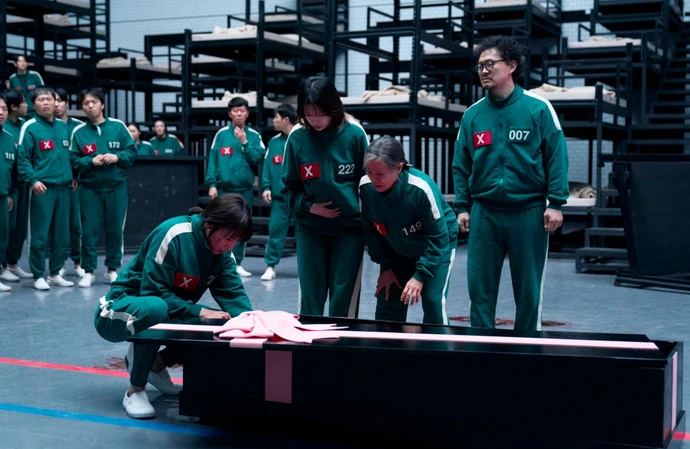
Squid Game / / Photo Credit: Netflix
But the Korean craze isn’t just limited to music. The Korean wave, known as Hallyu, is gaining unstoppable momentum like a tsunami. It’s branching into film, with Bong Joon-ho’s Parasite making history as the first foreign-language film to win the Oscar for Best Picture in 2020, while the dystopian sensation Squid Game became Netflix’s most successful production of all time, racking up over 111 million viewers in its first four weeks of release in 2021 – with the second season that dropped on Boxing Day last year, followed by Season 3, which premiered on June 27.
Most recently Netflix’s latest phenomenon, K-Pop Demon Hunters, was officially crowned most-watched movie in the platform’s history.
Since its release just two months ago, the action-fantasy flick has skyrocketed to the top of Netflix’s global charts, racking up over 236 million views and counting. That record-breaking figure doesn’t even include the film’s recent worldwide sing-along cinema release, which has only added to its cultural takeover.
Blending high-octane fight scenes, supernatural thrills, and a killer soundtrack, K-Pop Demon Hunters has struck a chord with fans across the globe - cementing its status as a full-blown pop culture juggernaut.
And it doesn’t stop there either. Restaurants are cashing in on the K craze, serving up Korean BBQ, Bibimbap, and Kimchi, as the global love for K-pop expands into Korean cuisine and lifestyle. It's a cultural revolution.
Do you have the K-factor?
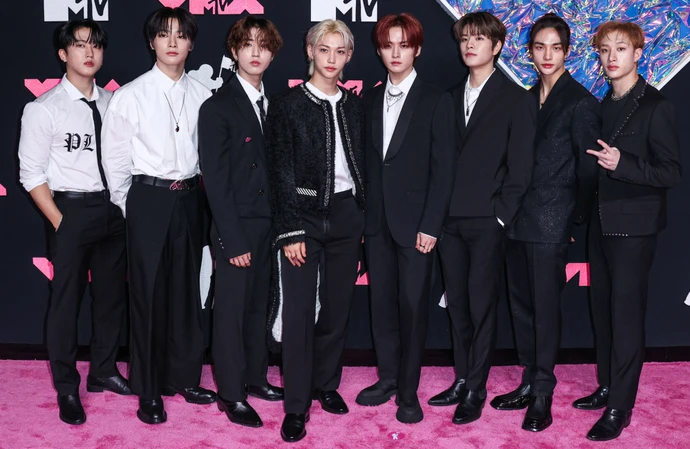
Stray Kids // Photo Credit: Avalon
If you think good vocals is all it takes to make it in K-pop, think again. While solid vocals might land you a ticket to the next round on The X-Factor, in the world of K-pop, that barely scratches the surface.
Becoming a K-pop star is no walk in the park. Forget sugar and spice and everything nice…. This recipe for success requires grit, passion and commitment as well as luck of the draw.
It takes a pinch of charisma, a dash or relentless hard work and a generous dollop of determination to survive the intensive training, let alone thrive in it. Schedules are grueling, expectations sky-high, and the competition, cutthroat.
Being a triple threat may be a highly coveted skillset in musical theatre, but in the world of K-pop it’s pretty basic. Idols are expected to be fluent in multiple languages, culturally agile, camera-ready, and always on point in every sense.
Trainees often spend two to three years in preparation before debut - some grind for up to a decade. Young hopefuls start auditioning in their early teens and continue well into their twenties, chasing a dream that only a few ever reach.
Before Blackpink debuted as a band in 2016 with hits like Boombayah and Whistle, its members were subjected to years of training.
Rapper and lead vocalist Jennie Kim auditioned in 2010 at just 14. Lisa, Jisoo, and Rosé followed suit in 2012 - each one committing four years of sweat and sacrifice before stepping into the spotlight.
Their faultless and effortless performances on stage bring a whole new meaning to the phrase ‘Practice Makes Perfect’ as it’s all thanks to countless hours spent rehearsing choreography and vocals. It's not about making sure you get it right, it's about making sure you don't get it wrong.
Shooting for the stars and aiming for the moon, success was well within reach for Rosé, with the dream of being thrusted to international stardom waiting on the other side.
But her climb to the top wasn’t all that rosy and was paved with thorns.
In an interview with Vogue, she said: “I ended up fighting for my life, training for my life. Because I couldn’t accept the fact that I’d just be cut and sent back.
“So I had no time to slack off. I remember I took every minute and every second to work on my craft so that I [could] make it.
“When I got [to Korea], I was like, ‘This is quite intense.
“I notice[d] that there [were] 12 other girls who had been training day and night for about five years. And I had just gotten there.”
Rose, originally brought up in New Zealand before moving over to Australia aged-7, said she was motivated by the fear of becoming a failure.
She said: “I had left and I didn’t want to fly back to Australia without having achieved anything.
“And I think it was a good drive. Just the fact that I had flown all the way from Australia gave me more strength [and] determination to strive.”
From Seo Taiji and Baby Vox to BTS and Blackpink…K-pop has boomed across four generations…
Inspired by the popularity of Japanese pop, or J-pop, in the 50s, a new genre of music was sweeping South Korea.
Despite being called J-pop, its roots lie in more traditional music compared to K-pop that has a western influence.
K-pop first emerged onto the scenes in 1992 with the boy group Seo Taji. Their fresh take on music, which combined elements of Western hip-hop and breakdancing, shaped the landscape of modern day K-pop by paving the way for freedom of expression for newer generations.
Still in its early infancy, the new generation of music gave birth to the original supergroups.
Before Blackpink materialised, Baby V.O.X were considered the O.G girl crush group made up of five members, that debuted in 1997 before disbanding in 2006.
The second generation of K-pop, from 2005 – 2011, is often referred to as the Golden Era of K-pop thanks to bands like 2NE1, who made the genre popular oversees changing the K-pop industry. Their energetic hook and exotic beats showcased the Korean vibe in their performances. The four member girl group that debuted in 2009 with the single ‘Fire’ under YG Entertainment, were at the peak of fame as one of the best-selling girl groups worldwide before their sudden disbandment in 2016 - which according to YG was due to a conflict of interest with band member Minzy.
Intent on replicating the success of 2NE1, YG Entertainment created Blackpink as an exact carbon copy with no intention of them being any different.
Founder of YG entertainment, Yang Hyun Suk, said: "If you ask me to distinguish Blackpink from 2NE1, I want to say I did not try to make them different. If you ask me what differentiates them from other girl groups, I will say I did not form them with that in mind. I tried to make the YG version of a girl group like I did with 2NE1. But this time I wanted the girls to look pretty too, with skills.”
First Step Debut, Next Step World Domination…
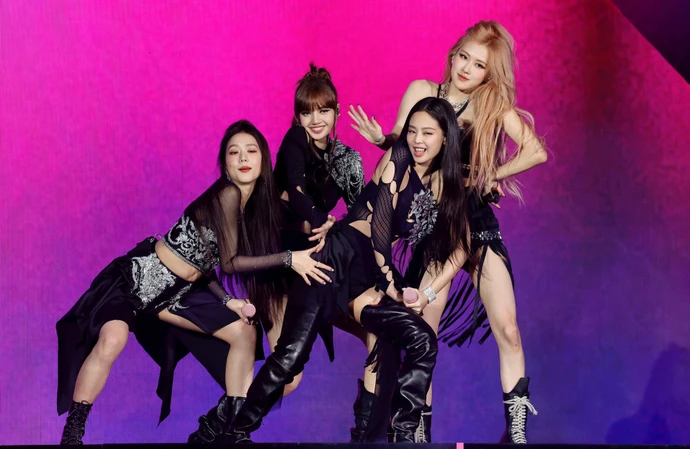
BLACKPINK // Photo Credit: Getty
Just days after their official debut, with their mini album Square One, – that features hits Whistle and Boombayah – Blackpink were top of the Billboard World Digital Song Sales chart, making them the fastest girl group to achieve this feat. In less than 15 days Blackpink had gone on to win first place on SBS’s singing competition series ‘Inkigayo’, which broke the record for fastest girl group to win a music show award debut.
Within 6 months the group became legendary.
By 2018 Blackpink were already the second biggest girl group in K-pop with only five songs under their belt. But after dropping their single DDU-DU DDU-DU that same year, it was the catalyst that propelled the band into international stardom, after it had become the most viewed song within 24 hours in Youtube history.
But the appeal of Blackpink is not random, it’s a cleverly crafted allure by YG Entertainment who wanted Korea to dominate the world.
The Shut Down singers were built specifically as a group that would infiltrate overseas by targeting the Western audience. Each member was cherry picked for their language abilities as Blackpink consists of three fluent English speakers, 2 Japanese speakers and one with a basic understanding of Mandarin. That makes them the most skilled multilingual speaking group in the industry.
Girl Power
Blackpink have become the fiercest girl group around who’s empowering anthems stand up to patriarchy…
Formed by YG Entertainment, the singing quartet - made up of Jisoo, Jennie, Rosé, and Lisa – debuted in 2016 and have since gone on to become the “biggest girl group in the world”, selling millions of albums and setting new records. Their potential is limitless.
But apart from their slick choreography, harmonising vocals and immaculate style they are an inspiration to many with a BLINK fanbase of over 55 million followers on Instagram who worship the ground they walk on and would do anything to be them.
As of 2023, Blackpink became the most streamed girl group on Spotify reaching over 10 billion streams.
They are without a doubt the most popular South Korean female band in the world and as put “the only gang to run the game in high heels” as well as the most powerful and most hyped. The world is their oyster.
Blackpink were an instant hit amongst fans and captivated the audience from day one thanks to their high energy and dynamic performances. Whilst Blackpink pride themselves on their unity, as together they create an electrifying stage presence, each member is uniquely gifted with their own talent who’s individuality and vibrant personas shine through.
It’s the combination of talent as well as diversity that has cemented Blackpink as the biggest K-pop girl band in history, who featured for the first time on Forbes Asia’s 30 under 30 list…
Together they are known to the world as Blackpink, but what are the glam squad’s identities outside of the band? Apart from Jennie’s influence, Jisoo’s sweet charm, Rosé’s golden vocals and Lisa’s power
Who run the world?...Girls
Jennie Kim

Jenni Kim // Photo Credit: Getty
The undisputed Queen of K-pop and South-Korea’s It Girl needs no introduction.
People love to hate Jennie Kim. Whether it’s envy or admiration every knows who she is. She’s the most popular idol in the East.
Underneath the diva persona is an actual softie.
Born in Seoul on January 16, 1996, Jennie briefly moved away to study abroad in New Zealand before moving back to South Korea where she joined YG in August 2010.
Jennie was announced as the first member of Blackpink and is the rapper and lead vocalist of the group.
Having been in the trainee program for nearly six years, where she perfected her English, Korean and Japanese, makes Jennie the longest standing member of the band.
She said: "I was the first one on the team, and I got to watch everybody come in.”
Desperate to reinvent herself as a singer after being pigeonholed as a rapper, Jennie became the first member to venture outside the band with her 2018 LP titled ‘SOLO’.
Speaking to Dua Lipa on the At Your Service poscast, she said: "I actually never had the chance to really explore singing as a trainee because I got told that I should be a rapper.
“And along the way, I kind of got confused. Because the more I did singing and music, I came to realize that there’s a big side of me inside that I love to sing and just play with my vocals. But I actually never had the chance to really explore that as a trainee, because I got told that I should be a rapper, you know? So there was a phase where I would hate to rap. Like, I was like, This isn’t me, like, this isn’t the journey that I envisioned in my head. Like, I don’t think I’m a rapper. So there was definitely a burnout season.”
Lisa

Lisa // Photo Credit: Getty
Fame was on the cards for Lisa, quite literally.
Born Pranpriya Manoban on March 27, 1997, she legally changed her name to Lalisa - which means “the one being praised” - after meeting with a fortune teller who told her this new name would bring her immense luck.
Fast forward a decade later, this could not be further from the truth as Lisa is the most popular global idol in the world with a following on Instagram of 106 million, breaking the Guinness World Record as the most followed K-pop artist. According to social media marketing management platform Hopper HQ, Lisa rakes in over $780k a post. It’s no wonder she regularly likes to keep her fans updated with selfies and outfits of the day.
In 2019 Lisa was the most searched and most trending idol according to google.
Not only is Lisa an idol she’s also a brand ambassador for French luxury house Céline and has endorsements with other brands.
Raised in Thailand, Lisa left Bangkok in 2011 and trained for five years before debuting as the second member of Blackpink and their main dancer.
Lisa became the first non-Korean artist to join the label as a K-pop idol.
The multifaceted star is often praised for her linguistic abilities by her former bandmates for being able to speak in fluent Thai, Korean, English, Japanese and basic Chinese.
Jisoo
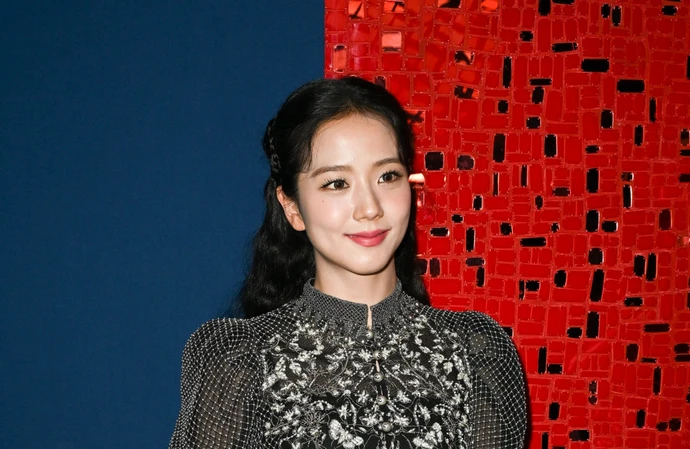
Jisoo // Photo Credit: Getty
What’s not to love about Jisoo, as one of Dior’s muses and a brand ambassador for Burberry and Cartier, she’s more than just a pretty face. Dubbed the wacky one of the group, there’s more than meets the eye with Jisoo.
As the third member to join Blackpink, Jisoo was already a K-pop star in her own right. Jisoo made her acting debut with a cameo appearance in 2015’s ‘The Producer’ before landing her first leading role in K-drama series ‘Snowdrop’ from 2021 to 2022.
Jisoo, who plays main character Eun Yeong-ro in the JTBC drama revealed how she declined the offer to sing on the show despite her musical skills.
She said: "I was asked to sing for the OST of 'Snowdrop,' but I said 'no' because I thought if I lend my voice and it came out as a song, the viewers wouldn't be able to focus on the drama. I wanted Young-ro to be known as Young-ro only. The directors then respected my opinion”.
Rosé

Roseanne Park Chaeyoung, known mononymously as Rosé, is the youngest member of the group. Born in New Zealand and raised in Melbourne, Australia, the 28-year-old singer is known for her distinctive vocals that are easily recognised amongst fans.
Rose did not think she’d become a K-pop idol until her father encouraged her to follow her dreams.
She said: “In Australia, I didn’t think that there was much of a chance for me to become a singer, especially to become a K-pop star…I was living too far from the country that is here. It never really occurred to me as a possibility.”
Rosé moved to South Korea at 15-years-old in 2012 shortly after nailing her audition in Sydney, where she came out on top amongst 700 contestants.
As the last one to join Blackpink, Rose recalled feeling intimidated when she was first introduced to the girls.
She said: “I was the new one, I was like the newbie. I walked in and there was just like a bunch of girls, like quite a lot of them in a room, and I remember just feeling so intimidated.”
Unaware of the Korean customs being raised in New Zealand, Rosé relied on Jennie to teach her the culture.
An an interview with NME, she said: “There’s this choreography that we have to learn, kind of like the basics, and [Jennie] was teaching me.
“She was like, ‘In Korea, you have to do this, and you have to call people by this and that’, and letting me know about all these cultures that I thought I knew about – but obviously I didn’t.”
Music Unites

Kim Jong-Un // Photo Credit: Getty
Music has long been used as an effective propaganda tool in authoritarian societies, with K-pop being no different.
Tensions between North Korea and South Korea have been running high for decades since the Korean war, which ended after three years in 1953.
Korea, which came together in the 7th century during the Silla Dynasty, remained a united front until the first Sino-Japanese war between the Republic of China and the Empire of Japan, where Japan triumphed and annexed the Korean Peninsula in 1910.
Korea was part of the Japanese Empire until the end of the Second World in 1945.
After Japan lost at the hands of the USA, who took over control, a decision was made to split the country in two and hand over half to Russia – who wanted a piece of the pie having previously lost a war with Japan in the early 20th century.
Both Soviet leader Joseph Stalin and US President Roosevelt agreed to the split at the time.
Anti-Communist leader Syngman Rhee was installed as leader in the South in 1948, with the soviets putting in charge Kim II-Sung in the North, reunifying Korea.
However a power hungry Kim II-Sung wanted control of the entire country igniting The Korean War.
The US, who were afraid of the spread of communism, joined the South alongside the countries of the United Nations to oust Kim II-Sung out. They conquered the North, not before 3 million people had died.
Since than Korea remained divided with a demilitarised zone being set up to prevent people from escaping. As the North remained communist and the South became capitalist, both sides became enemies with the North Koreans and South Koreans hating each other.
After the death of Kim II-Sung in 1994, his eldest son Kim Jong II became his successor and ruled till 2011. Kim Jong-Un has succeeded his father as the third supreme leader of North Korea.
In 2018, Kim Jong-Un made history by becoming the first North Korean leader to step into South Korea since 1953 and shake hands with their president Moon Jae-In.
Till then, both sides haven’t been able to see eye to eye, something which can be attributed to the powerful influence of K-pop.
That same year - when cultural diplomacy was in full swing - over 160 K-pop idols, including Blackpink performed for the first time in North Korea in Pyongyang.
The performances were watched by a crowd of hundreds, which included North’s leaders Kim alongside his wife, Ri Sol-ju.
Korea has relied on the cultural phenomenon Hallyu to develop its soft power and infiltrate its dominance oversees through K-pop instead of applying hard military force.















